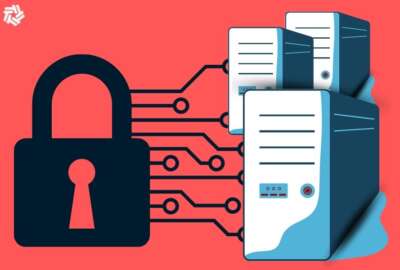
Insight by Alation
Industry Exchange Data 2023: Why best use of data depends on a strong data culture
Success in using data well to drive decisions and solve problems hinges on establishing a data culture that embraces all users, says Alation’s Scott Woestman. He...
Data-driven policymaking and decision-making have become enshrined in both law and policy. The result? Agencies must make continuous decisions about data, including how to normalize it, stage it and use it in applications.
Beyond all of the technology decisions though, agencies must find a way to establish a data culture, said Scott Woestman, vice president for public sector sales at Alation.
“Data culture is where everyone is empowered to use and interact with data and make decisions,” Woestman said during Federal News Network’s Industry Exchange Data.
“Traditionally, IT has held data and been able to control it, and business users have requested it,” he said. “IT often kept them at bay and have decided what they can and can’t use. A data culture is complete empowerment of the business user.”
Woestman describes “users” as pretty much anyone in the organization.
He shared three steps that agencies should take to move toward a data-forward culture.
Step 1: Data discovery
Hurdles lie on the route to creating an agency-wide data culture. Among them, the existence of data silos. They result from bureaus or components hoarding datasets.
Typically, that stems from a lack of understanding about the power of data sharing, Woestman said. But when trying to solve enterprise-wide or cross-agency problems, such data hoarding stalls an organization’s ability to act, he noted.
What’s more, when datasets are in silos, they may lie beyond easy discovery. Someone trying to solve a problem or evaluate a program might therefore be unaware of potentially useful information, Woestman said.
That’s why the initial step in establishing a data culture is discovery, he said. An agency will want to create a complete inventory of its structured data sources.
Discovery requires a sweeping search, he said. Data might be stored in agency data centers, in commercial clouds, in edge computing facilities and even on user devices.
Then, an agency can follow that discovery by taking steps to ensure data is fit for legal and secure sharing, Woestman said.
Step 2: Data hygiene
Ensuring data hygiene — that the data is fit for sharing and analysis — can be an equally challenging task, he said. Some datasets might require deidentification or cleaning of security-related elements, for instance.
Usable and comprehensive data must exist within a carefully crafted governance structure, Woestman said. Such a structure can help safeguard citizens, enhance data-driven policymaking and promote transparency.
Woestman said Alation has helped several government agencies “find data that is insecure or has shouldn’t-be-seen personally identifiable information.” Often such data resides in old databases and archives that users aren’t even aware of.
With data discovery and hygiene done, an agency can begin providing data access and sharing, he said.
Step 3: Data access
“Everyone needs to be able to use the data and use it in the right way,” he said, adding that tools like those from Alation enable effective data use by most people — not just data scientists.
Data governance, Woestman said, should cover access, automation in the application of data use policies and ground rules for sharing. He said Alation’s Natural Language interface helps agencies with automation and discovery processes in such a way as to help everyone, down to the most nontechnical user.
“It’s about reducing risk,” he said. “With great data in the hands of the right people, we have an opportunity to reduce risk.” Woestman cited federal improper payments as a problem that better data could help reduce.
He added that Alation overcomes the distributed nature of data sources.
“Alation software is available on prem or as software as a service. It has connectors that can reach out into those data sources,” he said. The software can speed data analysis application in part by using metadata, or data about the data.
“The way we look at it is, we’re automating and empowering people to be better at their jobs,” Woestman said. “They’re traditionally focusing on 80% of data gathering and 20% on analysis. We flip that, and we empower people to focus on mission critical outcomes.”
Check out all the sessions from Federal News Network’s Industry Exchange data on our event page.
Copyright © 2025 Federal News Network. All rights reserved. This website is not intended for users located within the European Economic Area.
Related Stories

Is it time to throw in the towel on federal data privacy legislation?

Maintaining compliance in government agencies with rich text editors
Featured speakers
-

Scott Woestman
Vice President for Public Sector Sales, Alation
-

Tom Temin
Host, The Federal Drive, Federal News Network
Upcoming Events
Related Stories
Top Stories

Scott Woestman
Vice President for Public Sector Sales, Alation
Scott has been working with government agencies for 18 years on solving mission critical challenges with data and analytics. He leads the public sector team at Alation, bringing data intelligence to agencies to help them deliver their mission with better access and collaboration to trusted data.

Tom Temin
Host, The Federal Drive, Federal News Network
Tom Temin has been the host of the Federal Drive since 2006 and has been reporting on technology markets for more than 30 years. Prior to joining Federal News Network, Tom was a long-serving editor-in-chief of Government Computer News and Washington Technology magazines. Tom also contributes a regular column on government information technology.



